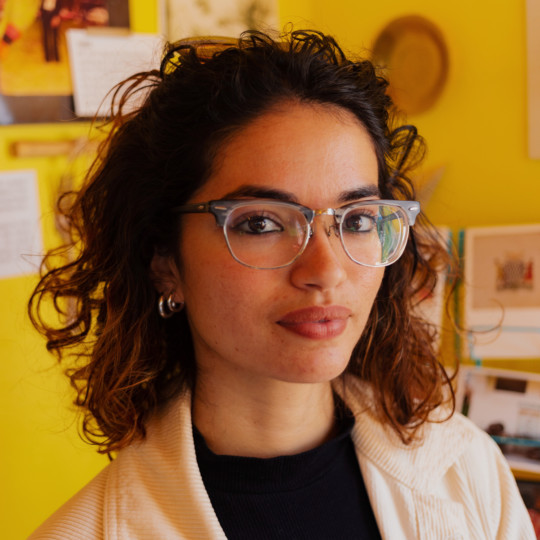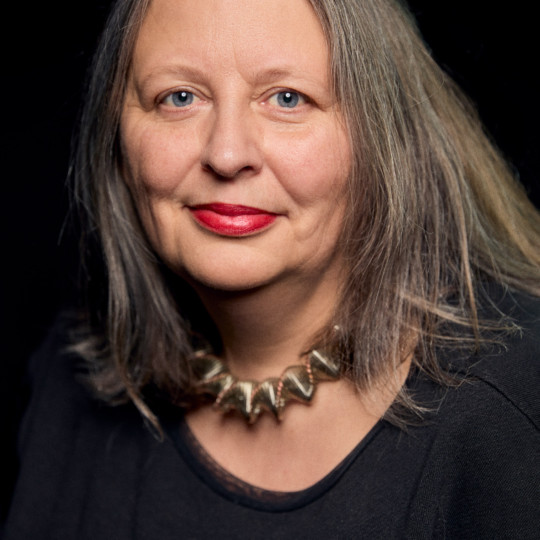People
Kerstin Hacker, senior lecturer and researcher in decolonisation of photographic practice at the Cambridge School of Art, Anglia Ruskin University, will stage a creative intervention in the Royal Commonwealth Society (RCS) archive at Cambridge University Library (the UL) in collaboration with Indian-Zambian photographer, archivist and curator Sana Ginwalla. This intervention will exhibit material from Zambia Belonging (ZB) – a digital counter-archive of found and crowdsourced images, into the RCS archive. Zambia Belonging’s core collection comprise images found in the attic of Fine Art Studios (a high street photo studio in Lusaka that has been in existence since the 1950s) and has undergone interventions through selecting, digitising, reprinting, theorising and locally exhibiting the found material. Zambia Belonging has since grown its collection by inviting those with any connection to Zambia to contribute to the project, thus developing a self-governed approach to mapping Zambia’s visual history. Through ZB, Ginwalla explores how photographs from the past can aid in creating meaning and value while preserving memory and identity in the Zambian context. The digital repository of these findings is slowly growing and is making its carefully considered first steps onto the international photographic scene.
By contrast, the stacks and shelves of the RCS archive run through the length of the basement of the UL, holding three hundred thousand printed items and four hundred different collections. This is the UL’s largest archive, yet inaccessible to many due to it turning from a public archive to an archive only accessible through archivists of the UL. This journey of moving in and out of the archive, the seen and unseen, the tangible and intangible, is what this intervention intends to explore.
While both the collections include photographs, and share similar stories of migration and (in)visibility, the content and intention behind the photographs – and how value and meaning has been created through them – stand in stark contrast. By juxtaposing the RCS archive with visual material from ZB – a collection that seeks to reimagine and challenge how institutional archives function – our hope is to encourage a dynamic rediscovery of the materials, and highlight potential new, decolonising readings of what the archive means.
To make the project more manageable within the period of the CVC Fellowship, we will focus on the Zambian material of the RCS archive, as it is one of the smaller collections. We will draw on a concept coined by Valentin-Yves Mudimbe as the colonial library. Mudimbe argues that the colonial library negates the ‘possibility of a plural rationality and history’ (1988:1995), and only references the singular narrative that the colonialists deemed noteworthy. This juxtaposition of materials will challenge and question the archival material held in the RCS archive, will highlight its biases and will allow a dialogue between the images by visualising the plurality of narratives.
The intervention will take place in the publicly inaccessible crevices and spaces of the basement stacks of the UL, where images from the ZB collection will be temporarily exhibited. Due to the strict UL security protocol, this exhibition cannot be seen by the general public. This further aids the discourse that we will explore around accessibility, visibility and the credibility and/or value of an archive. Therefore, this visual intervention will be documented and the documentation will be the only trace of the intervention. This creative outcome aims to interrogate the purpose of traditional archives and their colonial beginnings, in relation to images from a post-colonial, self-governed archive such as ZB, allowing us to imagine an alternative, pluralistic narrative of the African continent. Furthermore, the interventions will symbolise the potential of how new research can emerge if two contrasting archives from the global North and the global South are brought together and are being given the opportunity to cross-fertilise ideas.
In preparation for the fellowship, Kerstin Hacker will investigate the existing catalogue, interview archivists and librarians to discuss the catalogued and uncatalogued RCS material and highlight locations where interventions could create a critical dialogue between the RCS archive and the ZB archive. The proposed project hopes that this innovative collaboration between two fundamentally different archives will also invite new audiences to investigate the purpose of an archive.
The project will allow for conversations between Zambian and British stakeholders, artists and archivists and nurture new collaborations between the RCS collection and researchers from the global South. Furthermore, a project of this nature will also highlight the potential of the RCS archive to be at the centre of the decolonisation efforts at Cambridge University Library. The Cambridge University Libraries Decolonisation Working Group’s framework highlights the importance of broadening access to Cambridge-held national archives of Commonwealth countries to citizens of those countries. By contextualising historic collections like the RCS archive we will empower students to re-assess how we engage with different forms of knowledge through a multi-institutional graduate seminar.
The proposed work should be seen as a conversation starter, as a provocative intervention that stimulates discussion and an opportunity to bring people and materials together and highlight the importance of dialogue between established archives like the Royal Commonwealth Society archive and newly emerging initiatives such as Zambia Belonging. The outcomes are envisaged as stand-alone still and moving image digital documents that will be presented at a public round table and can be uploaded to the CVC website.
Jenni Skinner, manager of the Centre of African Studies Library, has agreed to support the project on a day-to-day basis and share her expertise on how to make the best out of challenging archival searches and how to master the card catalogue.
The project will also be supported by the Cambridge School of Art, Anglia Ruskin University where we will be able to experiment how creative use of materials will affect the intervention. We will have access to a broad range of facilities including scanning, photographic studios, colour and b/w darkrooms, 3D and textile printing and laser cutting.




